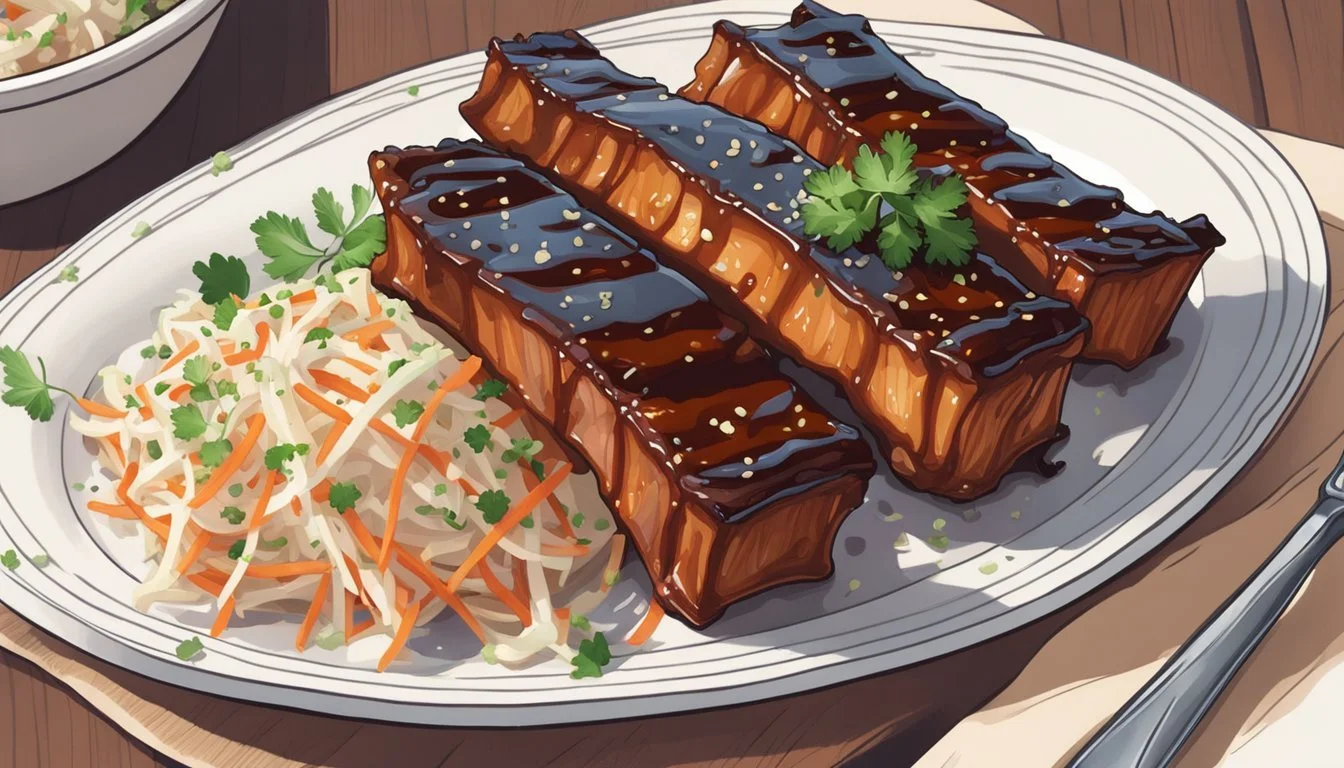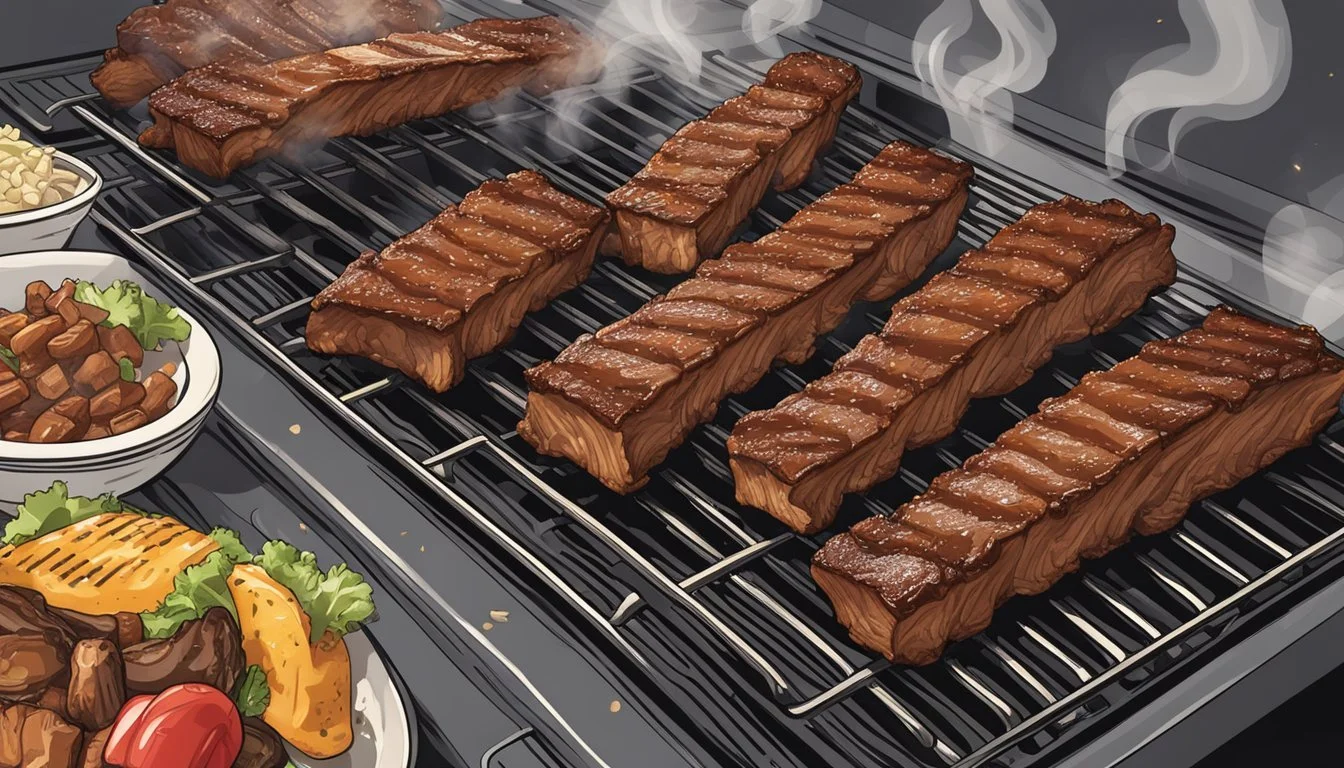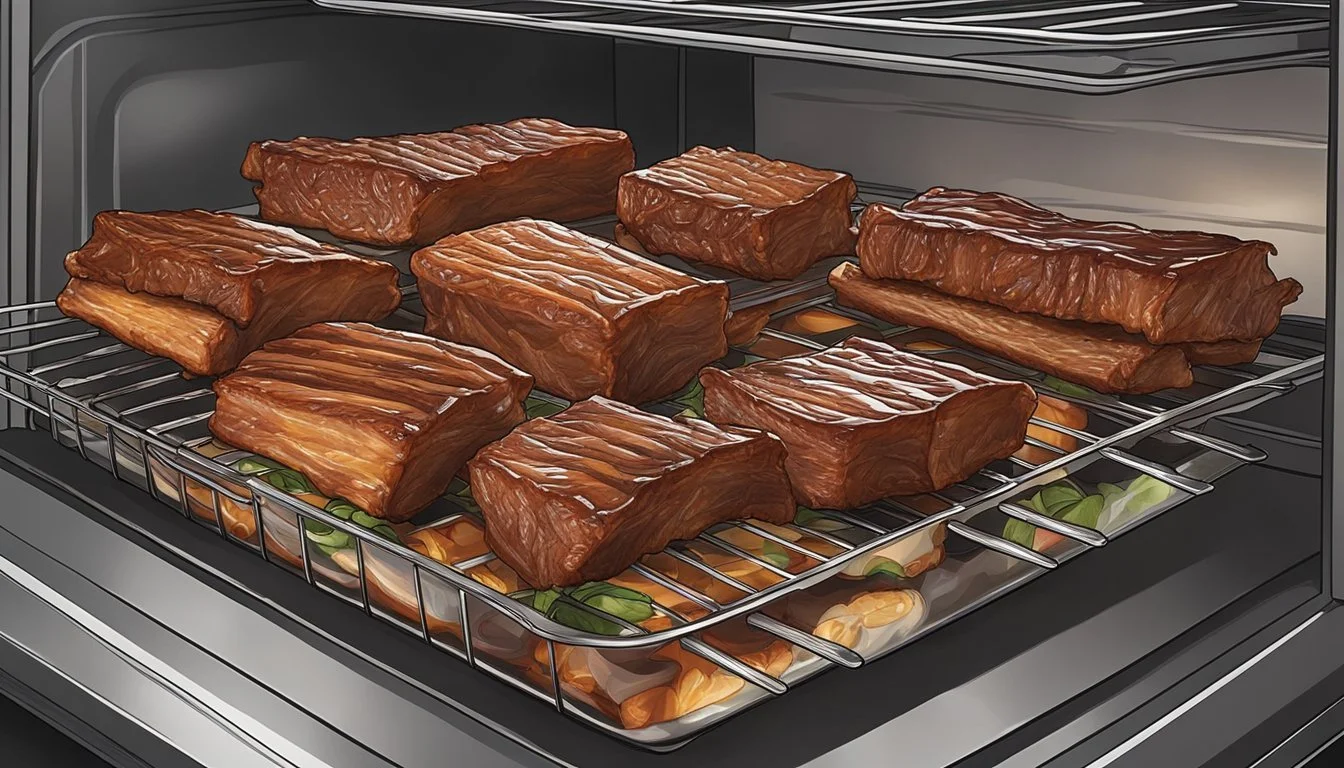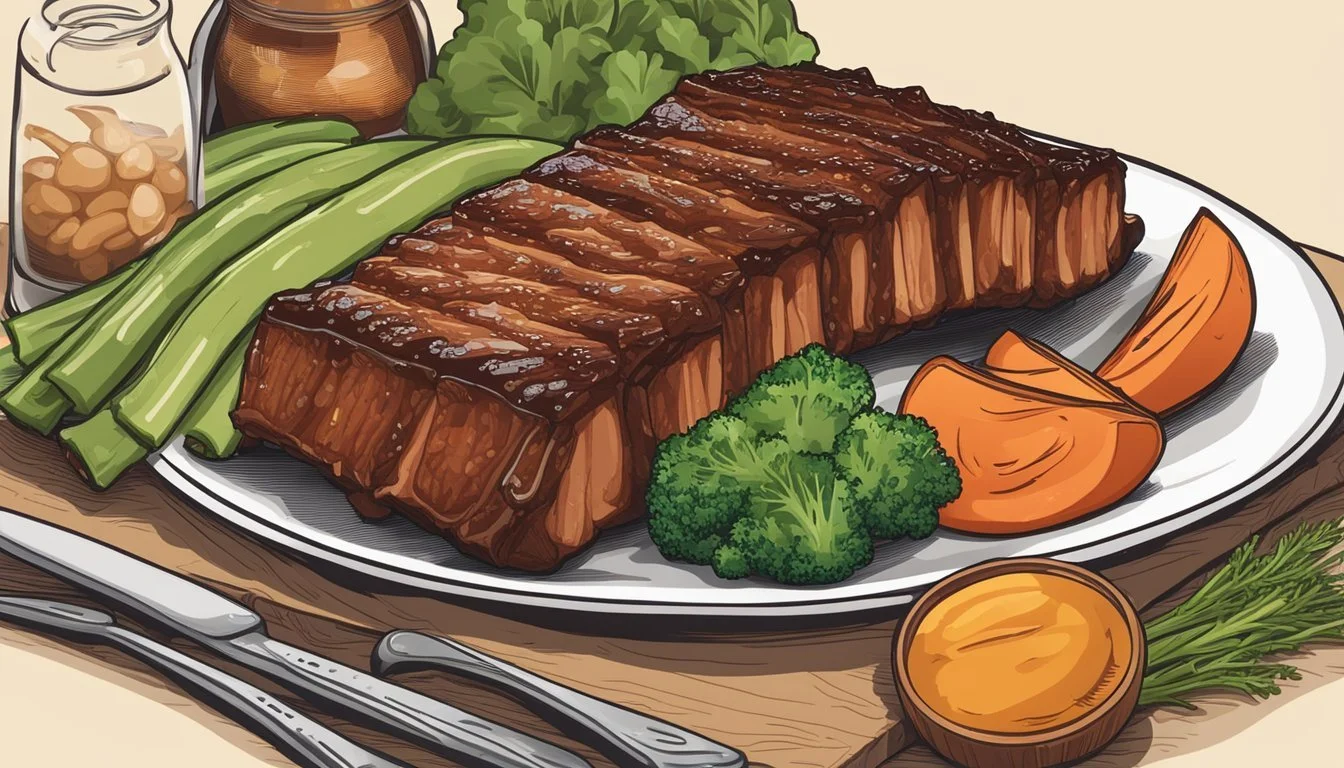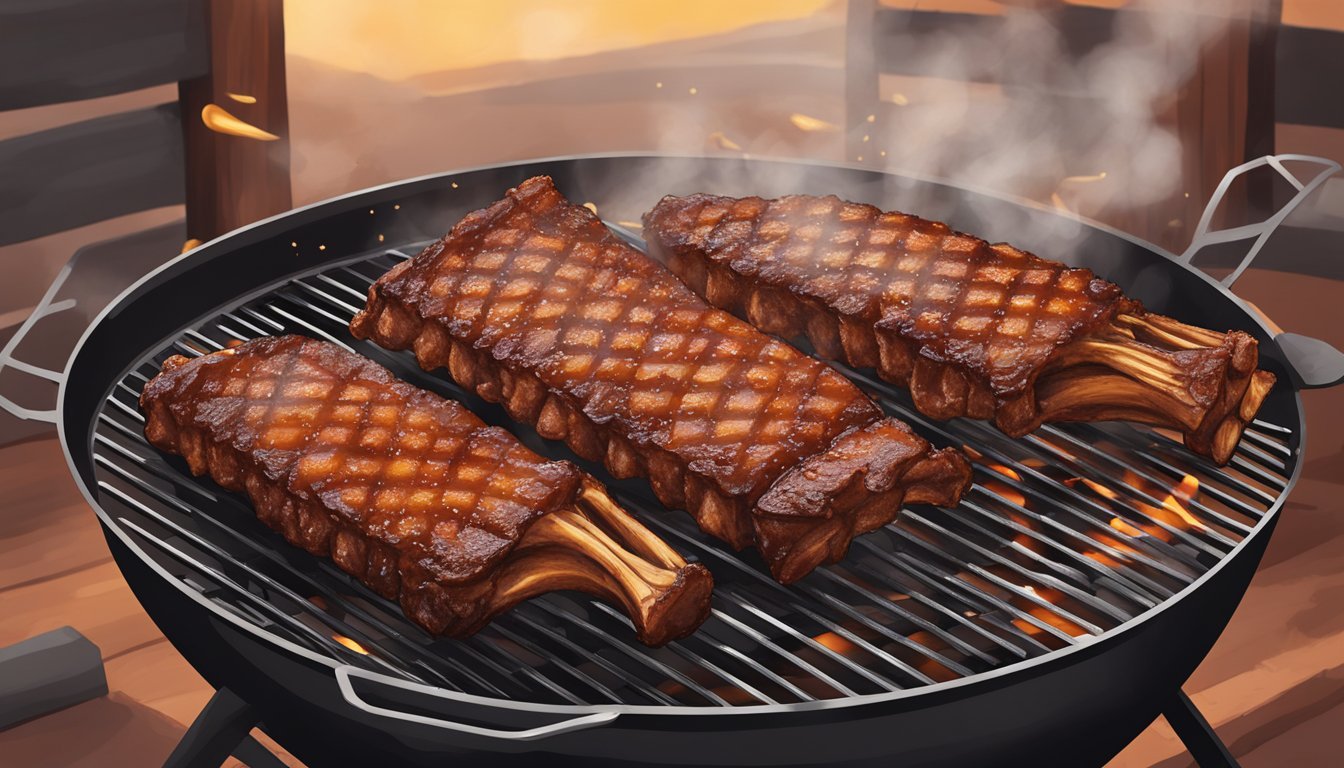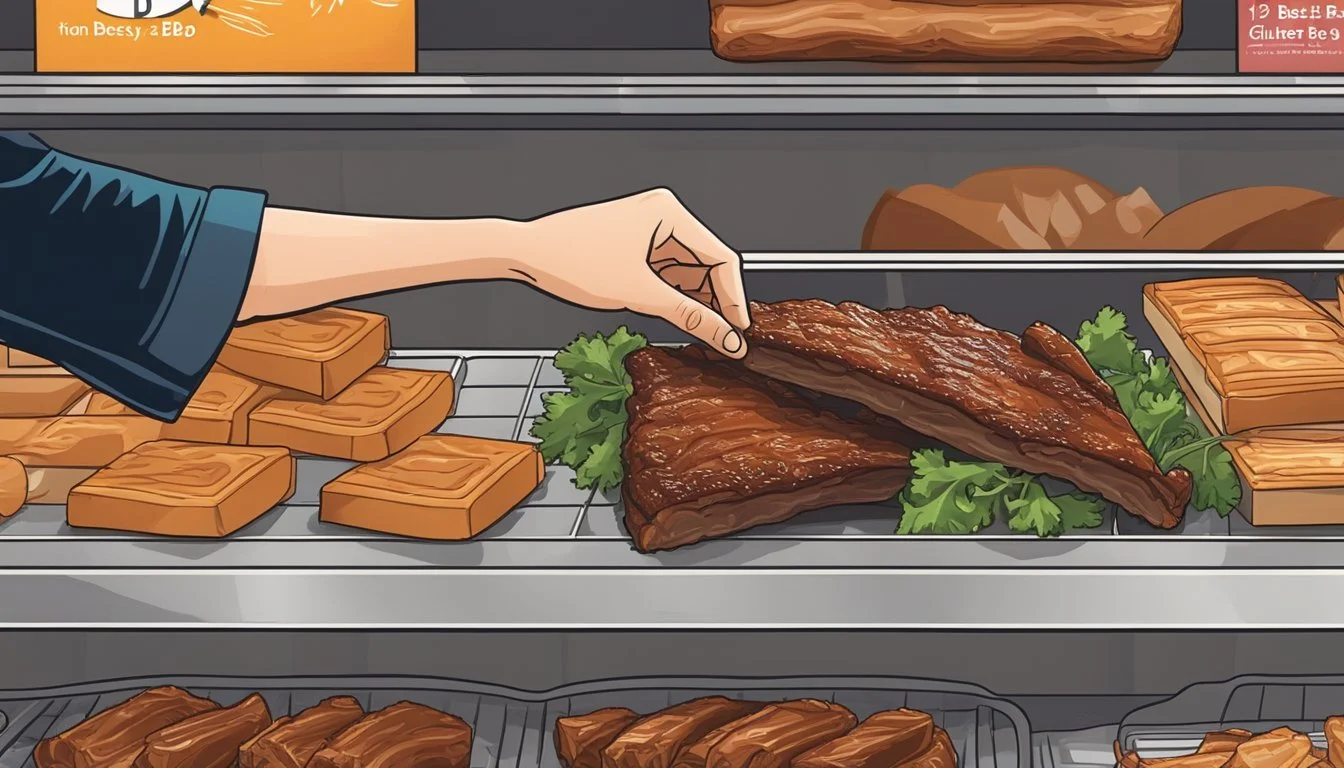How Long Do Gluten-Free BBQ Ribs Last?
Storage Tips and Shelf Life
Barbecue enthusiasts and health-conscious eaters alike know that preparing gluten-free BBQ ribs can be an art form. When stored properly, gluten-free BBQ ribs can last for up to 3-4 days in the refrigerator. Ensuring they stay fresh involves immediately refrigerating leftovers in airtight containers and reheating them safely before consumption.
The longevity of your gluten-free BBQ ribs not only depends on how they are stored but also on the initial preparation and cooking process. Ensuring the ribs are cooked thoroughly, cooled promptly, and kept at the correct temperature will help maintain their quality and safety over the next few days.
Understanding shelf life helps prevent foodborne illnesses and ensures that your delicious, gluten-free BBQ ribs can be savored for days. Whether you’re planning a big family feast or meal prepping for the week, knowing how long your gluten-free BBQ ribs last is crucial for enjoying every flavorful bite without worry.
Understanding Gluten-Free Ribs
Gluten-free ribs are prepared without ingredients that contain gluten, making them suitable for those with gluten sensitivities or celiac disease. Pork ribs are the most common type used for these recipes.
Preparation often starts with removing the membrane from the ribs. This helps in better seasoning and texture.
BBQ sauce is key to flavor. It's important to ensure the sauce is gluten-free by checking the ingredient list.
Common ingredients for a rub might include paprika, garlic powder, and cumin. These seasonings enhance the taste without adding gluten.
There are various cooking methods. Some recipes recommend baking the ribs at low temperatures for several hours until the meat is tender.
Popular side dishes to serve with gluten-free ribs include potato salad and coleslaw. These sides complement the flavors of the ribs and offer variety.
Gluten-free ribs can be a great option for sharing with family and friends. They provide a delicious and inclusive meal for social gatherings.
Selecting Ingredients
Choosing the right ingredients for gluten-free BBQ ribs is crucial. Start with pork ribs, which are naturally gluten-free. Ensure they are fresh and have a good amount of meat.
For seasoning, gather these spices:
Salt
Paprika
Brown sugar
Garlic powder
Cayenne
Black pepper
Kosher salt
Cumin
Mixing these dry ingredients creates a flavorful rub.
Next, focus on the BBQ sauce. Many commercial sauces contain gluten, so check labels or make a homemade version. Essential ingredients for a gluten-free BBQ sauce include apple cider vinegar, Dijon mustard, onion powder, smoked paprika, and chili powder.
Here's a simple dry rub recipe:
Ingredient Amount Paprika 2 tbsp Brown sugar 2 tbsp Garlic powder 1 tsp Cayenne 1/2 tsp Black pepper 1 tsp Kosher salt 1 tbsp Cumin 1 tsp
Combine all the ingredients in a bowl and mix well. Apply generously to the pork ribs before cooking to ensure a rich flavor.
When making the BBQ sauce, consider using ingredients like apple cider, Dijon mustard, onion powder, and smoked paprika. These add depth and complexity to the sauce.
By selecting high-quality, gluten-free ingredients, you ensure the best taste and safety for those with gluten sensitivities.
Preparation Techniques
When preparing gluten-free BBQ ribs, start with a pre-prep phase that ensures flavor and tenderness.
Marinate: Before cooking, marinate the ribs. Use a simple marinade of olive oil, vinegar, and gluten-free soy sauce. Let it sit for at least 4 hours or overnight in the fridge.
Dry Rub: Apply a dry rub composed of gluten-free seasonings. Here's a simple spice rub recipe:
2 tablespoons paprika
1 tablespoon brown sugar
1 teaspoon cayenne pepper
1 teaspoon garlic powder
1 teaspoon onion powder
Salt and black pepper to taste
Preparation Steps:
Preheat the Oven: Set to 300°F (or 325°F for a shorter cook time).
Foil Wrap: Place the ribs on a baking sheet, cover tightly with aluminum foil to retain moisture.
Bake:
Bake for 3-4 hours for larger ribs.
For smaller ribs, bake between 1-1/2 to 2 hours.
Cooking Tips:
Do not open the oven during the first 2-1/2 hours to keep the heat constant and ensure even cooking.
To check doneness, the meat should easily cut with a fork when removed from the oven.
For a glaze, add gluten-free BBQ sauce in the final 10 minutes.
Note: If you prefer a smoky flavor, finish the ribs on a grill for 10 minutes after the baking step.
These techniques ensure gluten-free BBQ ribs are flavorful, tender, and safe to eat.
Cooking Methods
Different cooking methods can impact the texture and flavor of gluten-free BBQ ribs. This section explores various techniques to achieve perfectly cooked ribs.
Oven
Place the ribs on a baking sheet or roasting pan. Preheat the oven to 325°F - 350°F. Ribs typically bake for 1.5 to 4 hours, depending on size and thickness. For gluten-free recipes, it's essential to use gluten-free rubs and sauces.
Outdoor Grill
Grilling ribs over indirect heat allows for slow, even cooking. Preheat the grill to low heat, around 200°F - 225°F. Cook ribs on a foil tray covered with heavy-duty foil to maintain moisture. After reaching tenderness, grill over high heat for a few minutes to add a charred flavor.
Slow Cooker
Slow cooking is another effective method. Season the ribs and place them in the slow cooker. Cook on low for 6-8 hours or high for 3-4 hours until tender. Transfer them to a grill or broiler for a few minutes to add a crispy texture.
Broiler
For a quick finish, the broiler can be utilized. After baking or slow cooking, place the ribs under the broiler for 5-10 minutes. This method achieves a caramelized crust while keeping the meat juicy.
Key Equipment
Baking Sheet / Roasting Pan
Outdoor Grill
Slow Cooker
Broiler
Choosing the right cooking method ensures that gluten-free BBQ ribs remain flavorful and tender.
Storage and Preservation
Storing gluten-free BBQ ribs correctly ensures they remain safe and delicious.
Raw Ribs:
Keep in the fridge at 40°F (4°C) or lower for 3 to 5 days.
For longer storage, freeze at 0°F (-18°C). They can last up to 12 months.
Cooked Ribs:
Store in the fridge for up to 4 days.
Freeze for longer preservation, up to 6 months.
Storage Tips:
Wrap ribs in heavy-duty aluminum foil or plastic wrap to prevent freezer burn.
Use airtight containers or freezer bags to keep out moisture and air.
Refrigerator Storage:
Rib Type Refrigerator (40°F/4°C) Freezer (0°F/-18°C) Raw 3-5 days Up to 12 months Cooked Up to 4 days Up to 6 months
Freezing Steps:
Cool cooked ribs before freezing.
Wrap each portion in aluminum foil.
Place wrapped ribs in freezer bags.
Reheating:
Thaw frozen ribs in the fridge overnight.
Reheat in the oven with foil to retain moisture.
Ensuring proper storage maintains quality and safety, making your gluten-free BBQ ribs a perfect choice for any dinner. Look for signs like slimy texture or discoloration to determine if ribs are spoiled.
Serving Suggestions
For juicy gluten-free BBQ ribs, consider pairing them with a crisp and refreshing coleslaw. The contrasting textures and flavors add a delightful balance to the meal.
A tangy barbecue sauce can elevate the taste of the ribs. Choose a gluten-free option or make one at home to ensure it aligns with dietary restrictions.
Salad options, such as a mixed greens salad or a cucumber-tomato salad, offer a lighter side that complements the richness of the BBQ ribs.
Ketchup can be served as an additional dipping sauce, but it is essential to verify that it is gluten-free.
Baked beans are a classic BBQ side dish. Their sweet and smoky flavor pairs perfectly with the savory ribs.
Potato salad is another great accompaniment. Its creamy texture and mild flavor provide a nice contrast to the bold taste of the ribs.
For a comprehensive meal, using a table can help organize serving suggestions:
Main Dish Accompaniments Juicy Gluten-Free BBQ Ribs Coleslaw, Barbecue Sauce, Salad Ketchup, Baked Beans, Potato Salad
Serve everything fresh to ensure the best taste and texture.
Health and Dietary Considerations
When preparing gluten-free BBQ ribs, it is essential to focus on the ingredients used in the marinade and sauce. Gluten, a protein found in wheat, barley, and rye, must be avoided. Always check labels for gluten-containing ingredients and use gluten-free alternatives.
Calories and Fat Content
BBQ ribs can be calorie-dense and high in fat. A typical serving of pork ribs contains around 250-300 calories and 20-25 grams of fat. Opt for leaner cuts or trim excess fat to reduce calorie intake.
Nutritional Balance
Pairing gluten-free BBQ ribs with vegetables and salads can help achieve a balanced meal. Including fiber-rich side dishes like coleslaw or grilled vegetables adds nutritional value and aids digestion.
Ingredients to Watch For
Sauces: Many store-bought BBQ sauces contain gluten. Always choose gluten-free labeled versions or make your own.
Spices and Rubs: Be cautious with pre-mixed spices as they can sometimes contain gluten as an additive.
Storage and Safety
Store cooked ribs in an airtight container in the refrigerator for up to 3-4 days. For longer storage, freeze them. Proper storage helps maintain the safety and quality of the ribs.
Health Benefits
Choosing gluten-free ribs can be beneficial for those with celiac disease or gluten sensitivity. Homemade preparations using fresh ingredients can also minimize additives and preservatives typically found in pre-packaged foods.
Ensuring the ribs are cooked to the correct internal temperature (195°F/90°C) is crucial for food safety. Proper cooking not only enhances flavor but also kills harmful bacteria.
Tips for Perfect Ribs
For perfectly cooked ribs, start by choosing the right cut. Baby back ribs are shorter and cook faster, while spare ribs are larger with more meat.
When prepping ribs, remove the silver skin from the underside for better tenderness. Apply a generous rub of your preferred spices to both sides.
Pro Tip: Use heavy-duty aluminum foil to wrap the ribs tightly. This helps retain moisture and ensures even cooking.
Oven-Baking
Baby back ribs or pork spare ribs can be baked in the oven. Preheat to 275°F (135°C) and bake for 3-4 hours until tender. Uncover and apply sauce for the last 5-7 minutes, broiling on low.
Grilling
For grilling, set up for indirect heat. Roast ribs at low temperature for 2-3 hours. Finish over direct heat for a few minutes, adding sauce if desired.
Pro Tip: Add a bit of water to a foil tray when grilling to maintain moisture.
Resting
Let the ribs rest for a few minutes after cooking. This allows the juices to redistribute, making the meat more succulent.
By paying attention to these tips, your baby back pork ribs and pork spare ribs will be flavorful, tender, and a hit at any barbecue.
Purchasing and Resources
When purchasing gluten-free BBQ ribs, it's essential to look for quality cuts of meat. Opt for fresh pork ribs from reputable sources. Brands like Stubb’s offer excellent gluten-free BBQ sauces that pair well with ribs.
For the best cooking results, invest in a dutch oven. This versatile tool helps ribs cook evenly and retain moisture.
Here’s a sample list of recommended items:
Fresh pork ribs from trusted butchers
Gluten-free BBQ sauce (e.g., Stubb’s)
Heavy-duty aluminum foil
Medium-sized dutch oven
For an enhanced flavor, consider using a mix of rub ingredients. These can include:
Paprika
Black pepper
Garlic powder
Cumin
Tip: The ribs can be caramelized on the grill for a crispy finish. Preheat the grill to medium and cook each side for about 15 minutes.
If you prefer online resources, many sites offer detailed recipes and cooking tips specifically for gluten-free BBQ ribs. Websites like Grain Free Table and Gluten-Free by Jan provide comprehensive guides.
In summary, the key to great gluten-free BBQ ribs lies in purchasing high-quality ingredients and using proper cooking resources.

